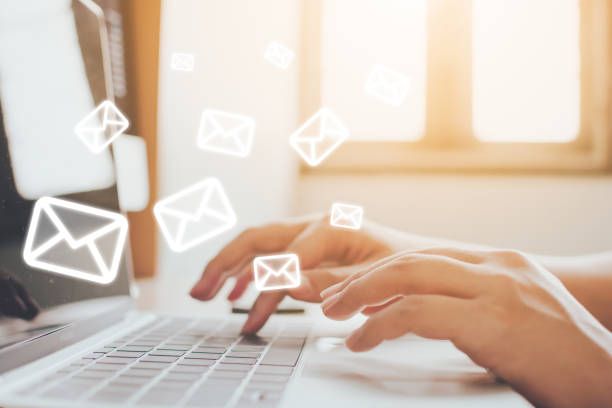Email has become an integral part of our daily lives, connecting people across the globe with just a few clicks. However, this widespread use of email also opens doors for potential threats such as spam, phishing, and identity theft. That's where email authentication checkers come into play. In this comprehensive guide, we'll delve into the world of email authentication checkers and explain how they can safeguard your online communications.
What Is Email Authentication?
Before we dive into the intricacies of email authentication checkers, let's first understand what email authentication is. Email authentication is a process that verifies the authenticity and integrity of an email message. It ensures that the email is indeed sent by the claimed sender and hasn't been tampered with during transit.
Why Is Email Authentication Important?

Email authentication is crucial because it provides several benefits, including:
- Protection against phishing attacks: Phishing is a prevalent form of cybercrime where attackers attempt to trick recipients into revealing sensitive information. By authenticating emails, you can identify legitimate senders and avoid falling victim to phishing attempts.
- Enhanced email deliverability: Email authentication protocols like SPF (Sender Policy Framework), DKIM (DomainKeys Identified Mail), and DMARC (Domain-based Message Authentication, Reporting, and Conformance) improve deliverability by verifying the sender's identity. This reduces the chances of legitimate emails being marked as spam or ending up in the recipients' junk folders.
- Preserving brand reputation: Email authentication safeguards your brand's reputation by preventing unauthorized senders from impersonating your organization. By using authentication protocols, you can establish trust and credibility with your recipients.

Introducing Email Authentication Checkers

Email authentication checkers are powerful tools designed to validate and verify email addresses. These tools leverage various authentication protocols to ensure that an email's sender is legitimate and that the message hasn't been tampered with.
1. Bounceless.io Email Verifier
Bounceless is a leading email authentication checker that provides a reliable and accurate email verification service. It validates email addresses in real-time, checking for deliverability and identifying potential issues. With its vast database and advanced algorithms, Hunter.io offers an effective solution to verify the authenticity of email addresses.
2. Mailtester
Mailtester is another popular email verification service that offers high-quality email verification and list cleaning. Its robust infrastructure and intelligent algorithms detect invalid, inactive, and risky email addresses, ensuring only genuine and valid emails reach your recipients' inboxes.
EmailListValidation is a user-friendly email authentication checker that allows you to verify individual email addresses easily. It checks for the existence of an email address and ensures that it is valid and active. With its simple interface, VerifyEmailAddress.org offers a straightforward solution for email verification needs.
4. EmailHippo
EmailHippo is a comprehensive email verification tool that provides accurate results and ensures email deliverability. It offers a range of verification services, including syntax checking, domain verification, and SMTP testing. EmailHippo's robust verification process ensures your emails reach the right recipients.
Gmail, one of the most popular email providers, also offers built-in email authentication features. By default, Gmail checks for authentication protocols like SPF and DKIM to validate incoming emails. However, it's essential to note that Gmail's authentication process is limited to emails received within the Gmail ecosystem.
Commonly Asked Questions
- How do email authentication checkers work?Email authentication checkers work by analyzing email headers, sender information, and authentication protocols like SPF, DKIM, and DMARC. They verify the sender's identity and the integrity of the email message to ensure it hasn't been modified during transit.
- Are email authentication checkers 100% accurate?While email authentication checkers are highly accurate, they cannot guarantee 100% accuracy. Some factors, such as temporary server issues or recently changed email configurations, can affect the results. However, using reputable email authentication checkers significantly minimizes the chances of false positives or negatives.
- Can email authentication checkers prevent all phishing attempts?While email authentication checkers provide robust protection against phishing attempts, they cannot prevent all phishing attacks. Attackers constantly evolve their tactics, and some may still find ways to bypass authentication measures. However, using email authentication checkers significantly reduces the risk of falling victim to phishing attacks.
- Do I need technical expertise to use email authentication checkers?Most email authentication checkers are designed to be user-friendly, requiring little to no technical expertise. They often provide simple interfaces where you can enter an email address or upload a list for verification. The results are presented in an easy-to-understand format, allowing anyone to use these tools effectively.
In conclusion, email authentication checkers play a crucial role in ensuring secure and trustworthy communication. By using these powerful tools, you can protect yourself and your organization from phishing attempts, improve email deliverability, and maintain a reputable online presence. Choose a reliable email authentication checker that suits your needs and take the necessary steps to safeguard your online communications.

